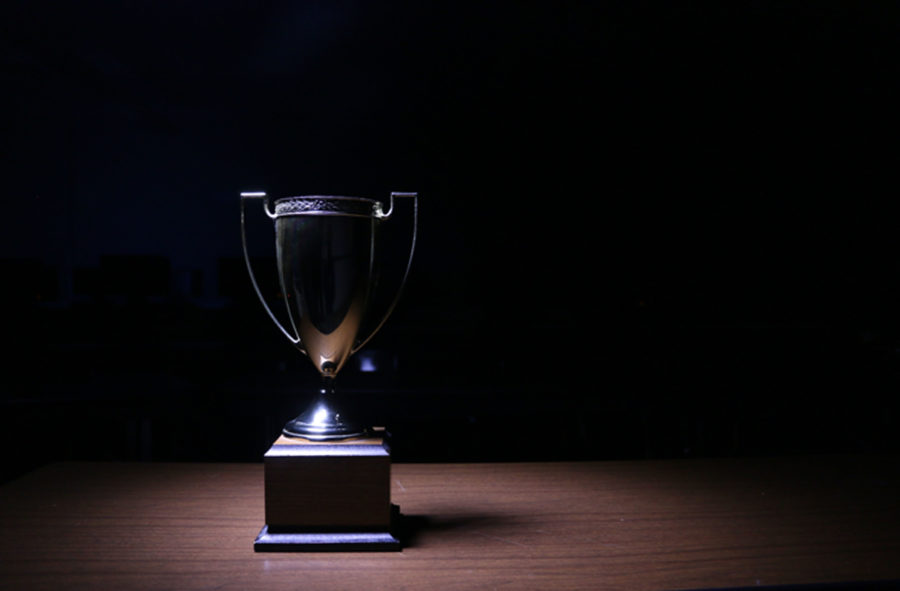Your donation will support the student journalists of Carmel High School - IN. Your contribution will allow us to purchase equipment and cover our annual website hosting costs.
WHEN WORLDS COLLIDE: As the world of eSports grows, so does CHS students’ interest in competitive gaming
September 16, 2016
To senior Anthony Ji, playing “League of Legends” (LoL) and “Super Smash Bros.” isn’t just his way of pursuing a gaming hobby. It means spending time with his friends, feeding his competitive drive and feeling a sense of achievement whenever he plays well.
“I played video games as a kid, and eSports was a way for me to continue that with my friends as I got older,” Ji said. “I liked playing with my friends. Playing by yourself is fun if you enjoy the game, but it’s hard to get into things unless someone’s there to show you or help you acclimate to certain parts of the game.”
Ji’s devotion to gaming reflects a growing fascination among young Americans with eSports, an umbrella term used to describe the professional gaming scene. This phenomenon will manifest itself from Sept. 29 to Oct. 29 of this year when the official LoL World Championship (Worlds) tournament will run.
According to Ji, this year’s Worlds is particularly special since it’s the first professionally-sponsored eSports competition ever in the Midwest. From Oct. 13 to 16, the four best LoL teams from around the world will play one another in the tournament’s semifinal round at the Chicago Theater in Chicago.
Domingo David, Competitive Gaming Club sponsor and AP Computer Science teacher, said he thinks the new diversity to eSports tournament locations will benefit potential and aspiring gamers.
“Ever since they’ve started having professional gaming competitions with monetary awards, every event has been on the West Coast in California or Vegas, or in New York. Basically, the bigger cities,” David said. “With the World Championship coming to the Midwest, that’s a good thing because it creates more possibilities for young people as career options, and it’s a way they can display their talent (for gaming).”
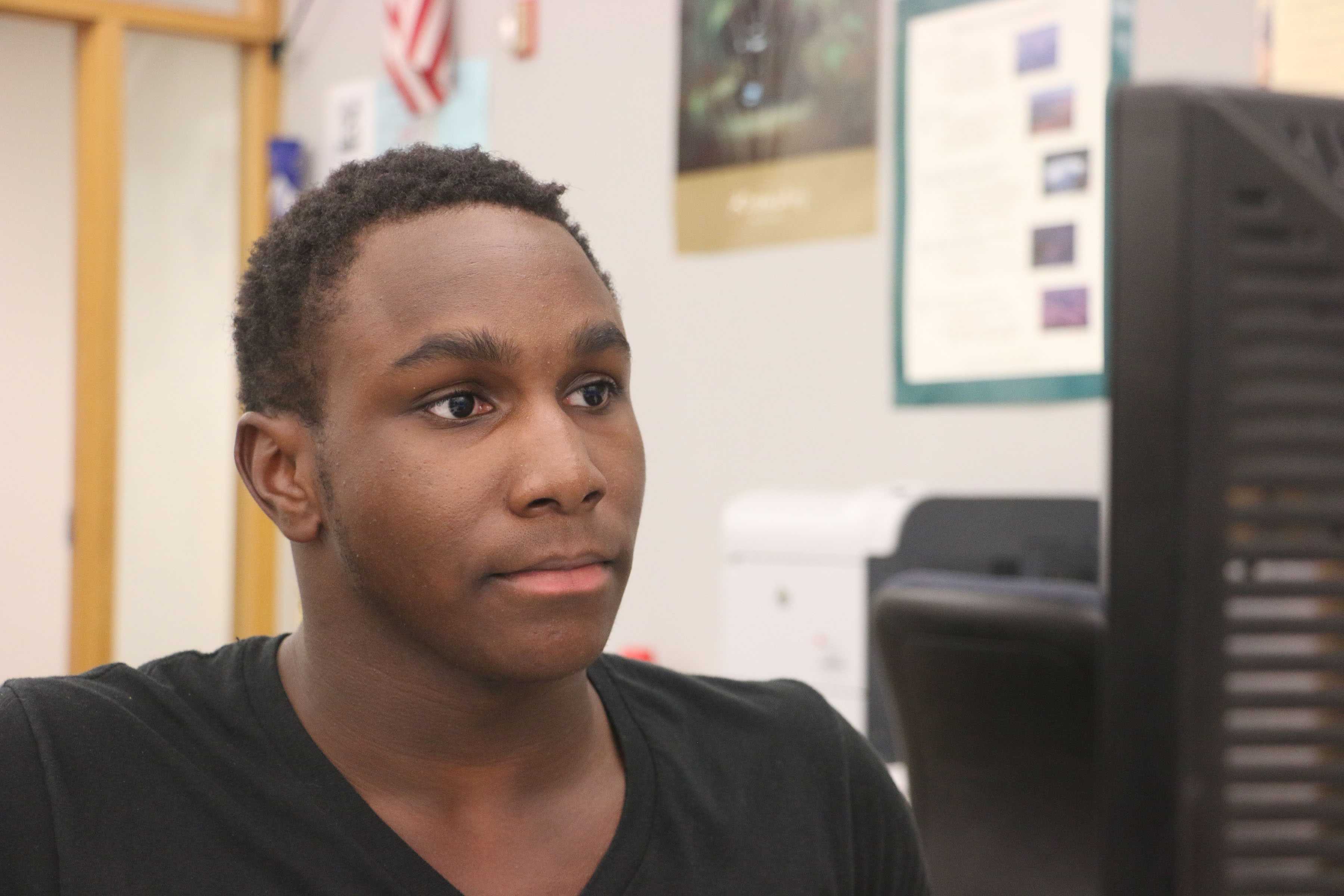
A LEAGUE OF HIS OWN: Senior George Schrader plays a game of “League of Legends” at a Competitive Gaming Club meeting. Schrader said the development of the eSports world has attracted a larger variety of players.
Gamer and senior George Schrader said he noticed the effects of increasing variation in eSports tournament locations.
“At CHS, I would say more people are playing games which are played competitively. If you’re saying population of eSports outside of Carmel, then yes, there are also more players,” he said.
Although Ji said he wouldn’t be going to Worlds to compete, he said he would realistically consider going to such an accessible tournament as a spectator.
Karthik Ravichandran, LoL player and junior, said he agrees.
“It would be very cool to go if I could get tickets, since ticket prices aren’t cheap, and they’re usually in high demand. It would be really interesting to compare the experience to attending a real sports event, like a basketball game,” Ravichandran said.
According to Ji, the atmosphere of experiencing a live eSports game is becoming an experience more and more people are opening up to. Furthermore, the impending Worlds tournament only emphasizes an expansion of eSports into popular culture. Although most students are usually unable to attend because of the location, many are planning to attend Worlds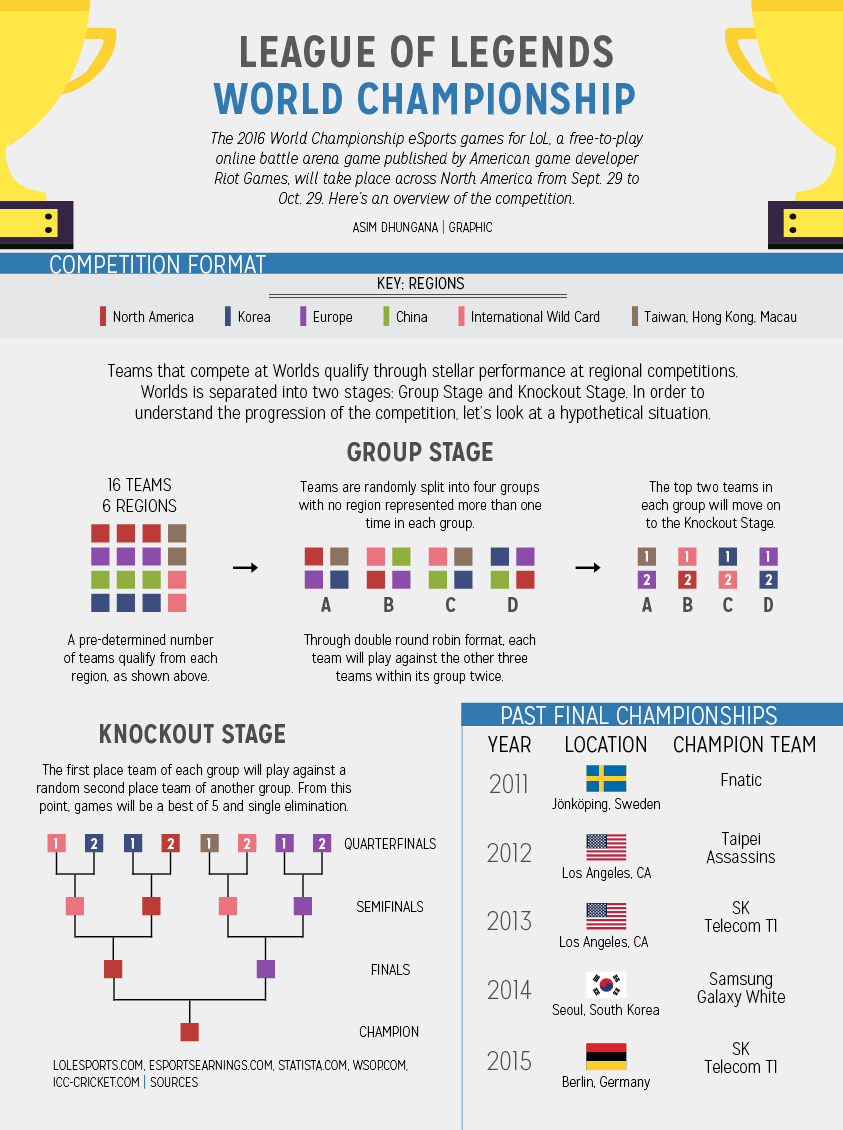 this year because it will be taking place in the Midwest.
this year because it will be taking place in the Midwest.
Ji said, “Some of my friends are considering driving down since (Worlds is) in Chicago. I think they’re having it there because North America is one of the bigger regions for eSports; it has a very large fanbase.”
CHS has experienced a similar reaction to eSports such as the activities of the Competitive Gaming Club that David sponsors.
David said the club members split into teams and have attended gaming tournaments to play against other local schools, such as Fishers High School and Hamilton Southeastern High School.
He said, “Right now, we don’t have too big a group of students who play competitively in the club, but they’re a close-knit group who work really well together.”
David said many students in the club play to relieve stress or to have fun, not to train for a career in professional gaming.
Despite this, he said he would like to see an expansion of gaming among students and young Americans in general, whether it be recreationally or competitively.
“There’s high school and collegiate sports (teams) who face off regionally and nationally with their rivals. In a way, it’s even easier to hold your (gaming) matches, because everything’s online. But, I think even if you don’t have a specific goal in mind when you start gaming, it’s still fun to play, and I think that’s a legitimate reason to do so,” David said.
Ji said he sees the expansion of eSports in culture and business as a way to reduce the social stigma surrounding video games.
“I think the stigma is the same as any other hobby, though I suppose it’s often argued that you’re not actually doing anything, but people are starting to realize it’s just like any other hobby. People do it for fun,” he said. “I think most of the underlying stigma is because people who don’t play video games have a hard time understanding why people would want to do it. I also think it’s mostly older people, especially parents, because they didn’t have this growing up. But, I think for younger people, it’s becoming a more normal thing.”
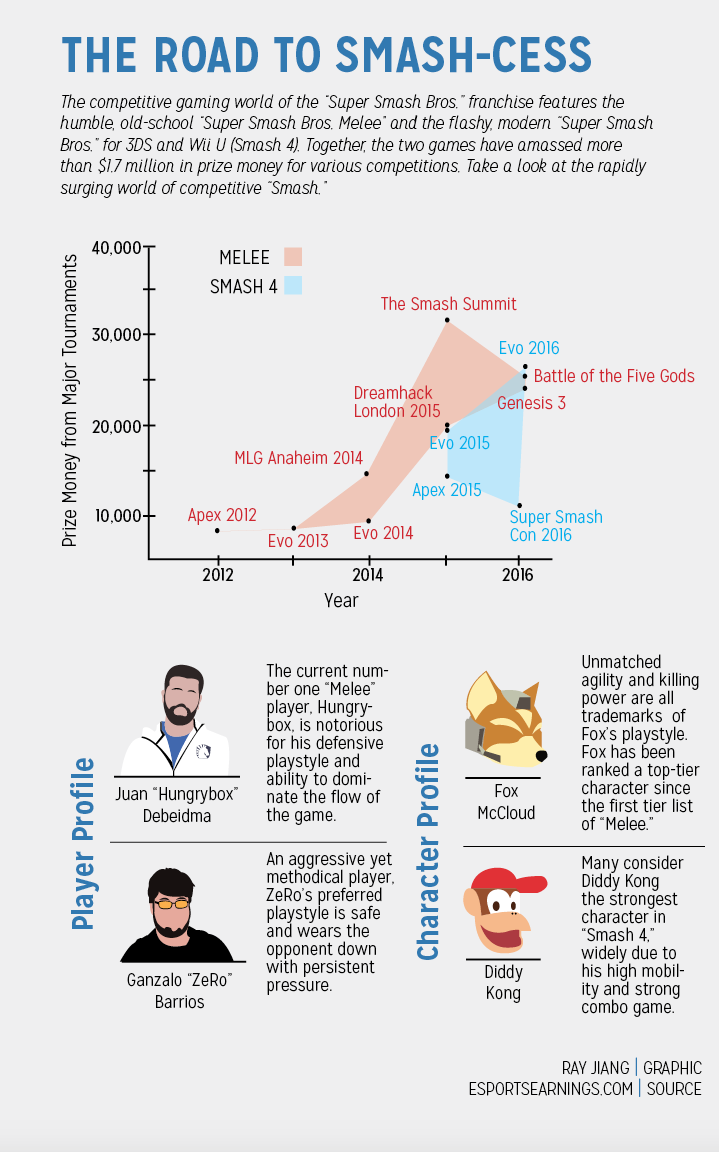 According to a February 2016 article by ESPN on the status of eSports in the traditional sports world, Riot, the parent company who founded LoL, has worked with many governments across Europe, Asia and North America to recognize professional gamers as athletes when issuing work visas.
According to a February 2016 article by ESPN on the status of eSports in the traditional sports world, Riot, the parent company who founded LoL, has worked with many governments across Europe, Asia and North America to recognize professional gamers as athletes when issuing work visas.
Ravichandran said he also thinks this is a big step in removing negative opinions the public has about gaming for both competitive purposes and casual gamers.
“When governments recognize eSports as actual jobs, it makes it all the more legitimate in the eyes of the public. Now, there’s a professional and authentic label to the industry, which always helps with the popular belief in legitimacy,” Ravichandran said.
This is reflected in rising prize pools and viewer counts for eSports tournaments since the advent of competitive gaming tournaments in 2011.
According to LoL eSports, the official sponsored website for the Worlds tournament, the prize pool for the competition has gone from $100,000 in prize money with around 1.8 million viewers the first year the tournament ran in 2011, to $1.5 million in prize money and over 36 million total viewers last year.
For David, this growing popularity of eSports is another sign of increased diversity in modern entertainment.
“It’s clear that the community is enormous compared to the state of eSports five years ago when professional gaming was first coming onto the stage,” he said. “Clearly, there are positives and negatives to any events like those, but I personally don’t believe that the growth of eSports is a bad thing because it shows that people are willing to evolve their platforms of entertainment.
“Instead of just watching television or watching traditional sports, eSports offers a combination of the two, which is interesting to see because you have to wonder where it’s going to end up and how it could affect more events in the future.”
Ji said the future with Worlds, as one of the biggest tournaments in the eSports realm coming to the Midwest, will result in a more socially integrated eSports community 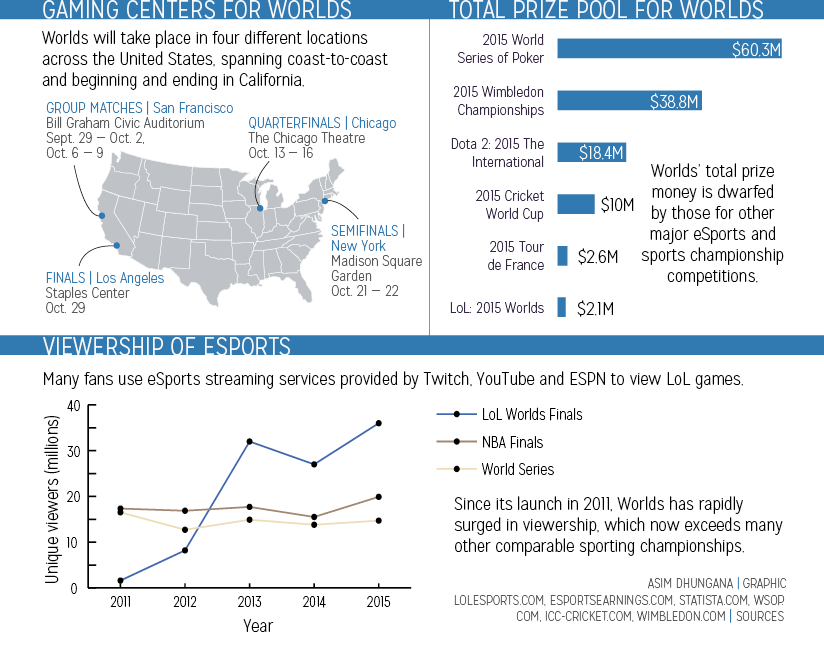 across the country.
across the country.
“I think (eSports) will probably become more mainstream. It has a large following among young people, and commercialization is already common in a lot of the bigger scenes,” he said.
Schrader also said he has noticed the development of eSports has led to a greater variety of people playing.
Schrader said, “The culture of eSports has been shifting over the past two to three years to cater more to casual players. The moral infrastructure of those that run eSports is becoming a lot more sensitive, but in a forcefully progressive way. It’s all about fun for the casual players.”
Overall, the expansion of eSports has made the games more social and increased participation of less-experienced gamers.
Ji said, “Video games are one of the most common internet activities among youths; I think it’s cool that you could possibly become friends with someone on the other side of the country through video games.”
